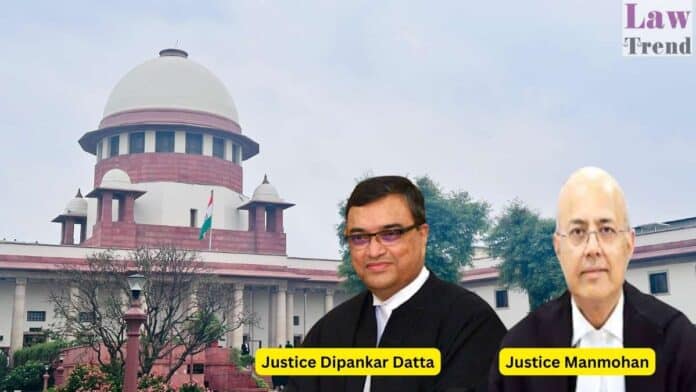The Supreme Court has reiterated that it cannot invoke Article 142 of the Constitution to reduce a sentence below the statutory minimum prescribed by law. The ruling came in Dashrath vs. State of Maharashtra [Criminal Appeal No. ____ of 2025, arising out of SLP (Crl.) No. 13997 of 2024], where a Bench comprising Justice Dipankar
To Read More Please Subscribe to VIP Membership for Unlimited Access to All the Articles, Download Available Copies of Judgments/Order, Acess to Central/State Bare Acts, Advertisement Free Content, Access to More than 4000 Legal Drafts( Readymade Editable Formats of Suits, Petitions, Writs, Legal Notices, Divorce Petitions, 138 Notices, Bail Applications etc.) in Hindi and English.




